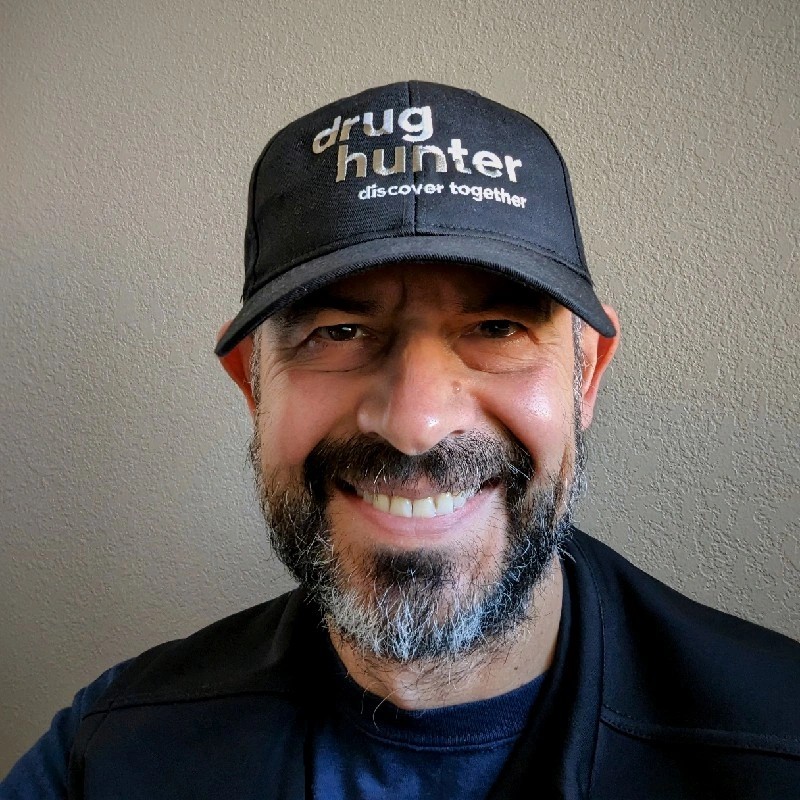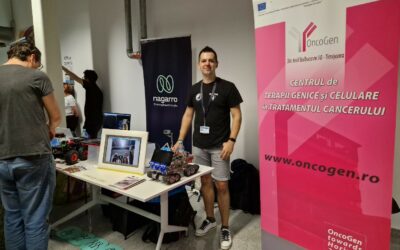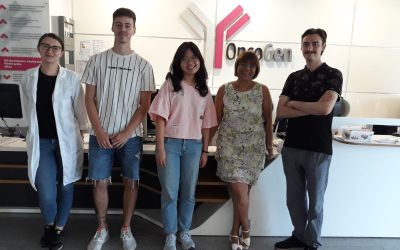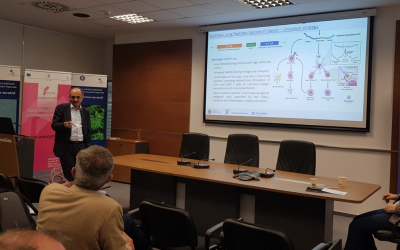// Proiecte
Principalele proiecte de cercetare dezvoltate la OncoGen
Niciun Rezultat
Pagina căutată nu a fost găsită. Încercați o căutare mai profundă sau folosiți navigarea de deasupra pentru localizarea postării.
// Știri și evenimente
Ultimele Știri și Evenimente Oncogen
Noaptea Cercetatorilor
In data de 29 septembrie 2023, Remus Tomsa alaturi de echipa...
Schimb de experiență cu studenți străini
În luna august, Centrul OncoGen a găzduit și instruit trei studenți...
Smart Diaspora 2023
Conferința ”Diaspora în Cercetarea Ştiinţifică şi Învăţământul...
// Schimb de experiență
Schimburi de experiență internaționale












